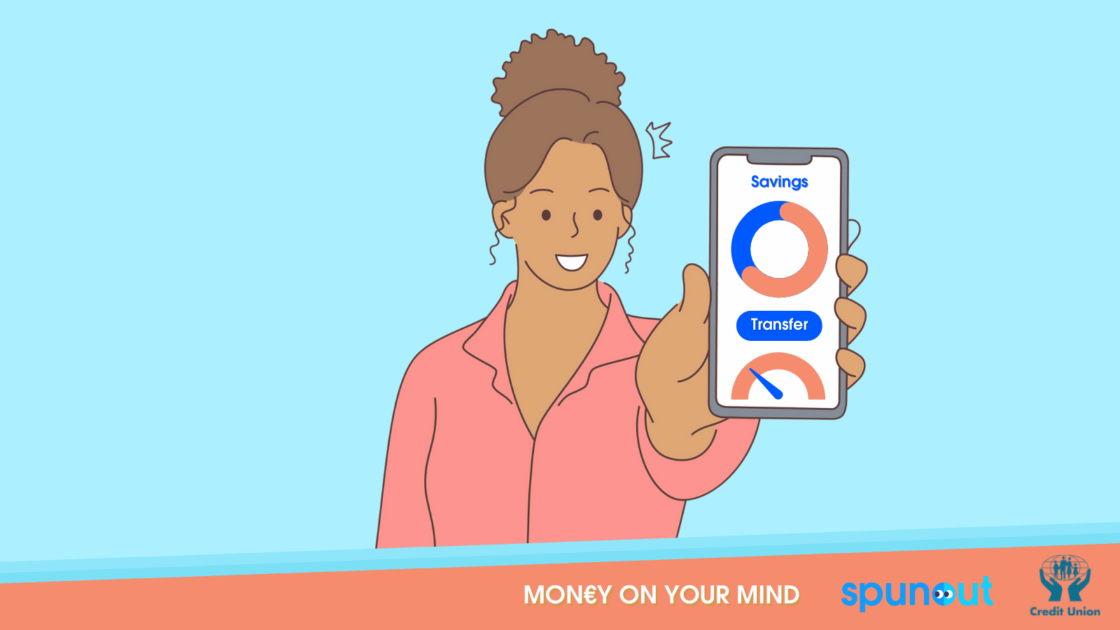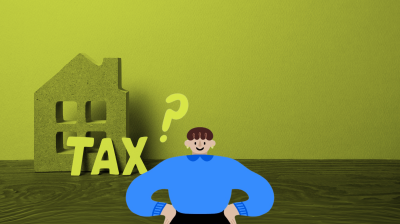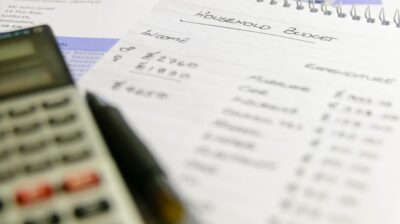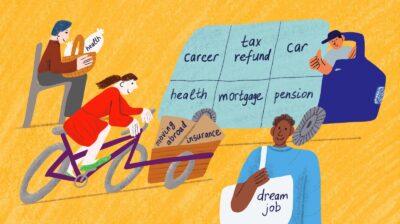How to create a budget
If you are creating a budget, it is important to make one that is realistic and manageable for you

This article was developed in partnership with the Credit Union, a not-for-profit, community-owned financial institution.
By learning how to create a budget, you can prioritise affording the essentials, while still planning for the future and working towards your financial goals.
What is a budget?
A budget is a plan of how you will spend your money over a certain period of time. If you create the budget that is right for you, it can help you to avoid stress and reach your financial goals.
Why should I create a personal budget?
No matter what phase of life you’re in, whether that’s planning out your finances as a student, working, or planning for a life transition, budgeting is always beneficial. Budgeting can help you to:
- Plan to pay for the things you consider essential
- See where your money is going and make changes when necessary
- Reach your financial goals
- Save for your future plans
- Help lessen financial stress
- Avoid or move out of debt
A budget is a personal thing, and you might have other reasons for creating one. By keeping your “why” in mind, it will be easier for you to stick to the budget that you set.
The Money Advice and Budgeting Service (MABS) offers tools and resources to help you to manage your money. Their free My Budget tool can help you to work out your budget in 15-20 minutes.
How to create a budget
The budget that you create needs to be realistic and achievable for you. To create your budget, you will need to complete some simple steps.
Set your own goals
Before working on your budget, it is important to know what your goals are. If you are starting college, one of your goals might be to balance essential expenses and social outings, without running into debt. It is possible that you will have other goals, such as saving for a trip or paying off a loan. Goals can be as specific as you want. Keeping your goals in mind will encourage you to stick to your budget.
Figure out what you have to spend
Before deciding how you will spend your money, you need to know how much money you will have each month. Calculate your income by considering any of the following that apply to you:
- Your take-home pay (pay once tax is deducted) from any full-time, part-time or freelance work
- Student grants or other financial supports for college students
- Social welfare payments
- Financial assistance from family/ guardians
- Savings that you have allocated for certain living expenses
If the amount of money that you earn from work varies, it is better to underestimate rather than overestimate your monthly earnings.
Calculate your expenses
When creating a budget, you will need to figure out how much you will be spending on different things each month. Some costs, such as rent and transport, might be obvious to you. Examining your bank statements will give you a rough idea of how much you currently spend on other things.
Some expenses may be difficult to determine right now. For example, if you have moved to a new area, you might be unsure how much you will spend on groceries each week. In this case, try to calculate a rough estimate based on the knowledge that you have, and the advice of others.
It is a good idea to set money aside for unexpected expenses like doctor appointments each month.
Categorise your expenses
Once you have an idea of what your monthly expenses will be, it is helpful to categorise them. Divide the expenses into two lists: fixed and variable.
Fixed expenses are those likely to stay the same each month, such as rent and transport. Variable expenses are those that are likely to change each month, depending on your circumstances.
Make adjustments if necessary
Calculate your total monthly income and then add up all of your estimated expenses. If you subtract total expenses from your total income and find that you have money left over, you’re in a good position. You can decide to allocate that extra money towards certain areas of your budget, such as savings or social activities.
If you discover that your monthly expenses are higher than your income, you will need to make some adjustments. Take a look at your list of expenses and decide where you can make some savings. It might be helpful to divide them into lists of essential and non-essential expenses before deciding where to cut costs.
Track and adjust your budget
If you think it might be useful for you, you could consider tracking your spending for a few months. This will help you to learn more about your spending habits and determine whether your budget was realistic, or whether you need to make any adjustments. You can track your spending using a notebook, an Excel spreadsheet or a spending tracker app. After trying this, you can decide whether tracking everything works for you or whether you prefer to take a more general approach to monitoring your spending.
Read more about apps that can help save you money.
Making a budget that you can stick to takes some trial and error. You might need to try it a few times until you find one that works for you.
Review your budget
Even if your first budget turns out to be right for you, it is possible that you will need to make changes later. Your work or living circumstances may change, or perhaps your priorities will shift. Set aside some time every few months to review your budget and determine whether it is still in line with your goals and circumstances.
If you want more advice on how to manage your money, you can contact Youth Information Chat:
If budgeting or managing your finances is causing you stress or panic, it is a good idea to seek support. Financial stress is a real mental health concern and if you are experiencing it, know that there is help available. Our 24/7 text message support service 50808 is here to support you:
Feeling overwhelmed and want to talk to someone?
- Get anonymous support 24/7 with our text message support service
- Connect with a trained volunteer who will listen to you, and help you to move forward feeling better
- Whatsapp us now or free-text SPUNOUT to 50808 to begin.
- Find out more about our text message support service
If you are a customer of the 48 or An Post network or cannot get through using the ‘50808’ short code please text HELLO to 086 1800 280 (standard message rates may apply). Some smaller networks do not support short codes like ‘50808’.
Need more information, advice or guidance?
We offer information, advice and guidance about the issues that matter to you. Our online Youth Information Chat service is for 16 to 25 year olds and is available Monday to Friday, 4pm to 8pm (excluding Bank Holidays).






